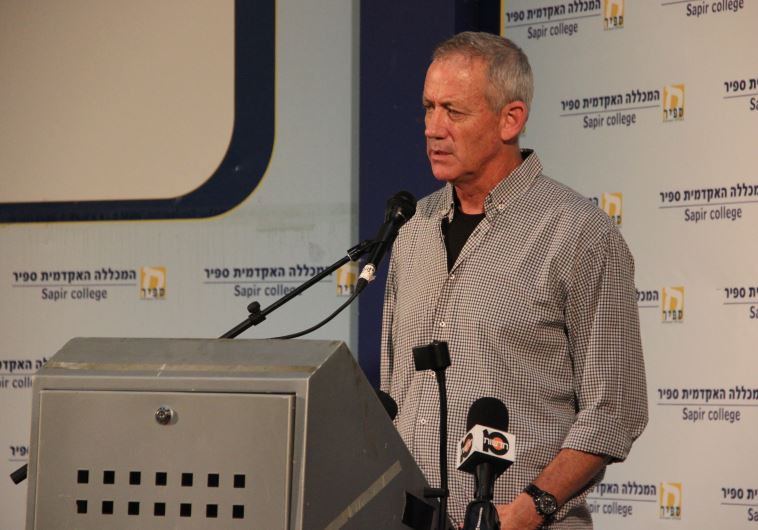Former IDF chief of staff Benny Gantz: We will always live with our sword
"I don't know if diplomatic initiative with the Palestinians can lead anywhere, but we must try."
 Former IDF chief of staff Lt.-Gen. Benny Gantz(photo credit: GUY WASSERMAN)Updated:
Former IDF chief of staff Lt.-Gen. Benny Gantz(photo credit: GUY WASSERMAN)Updated: